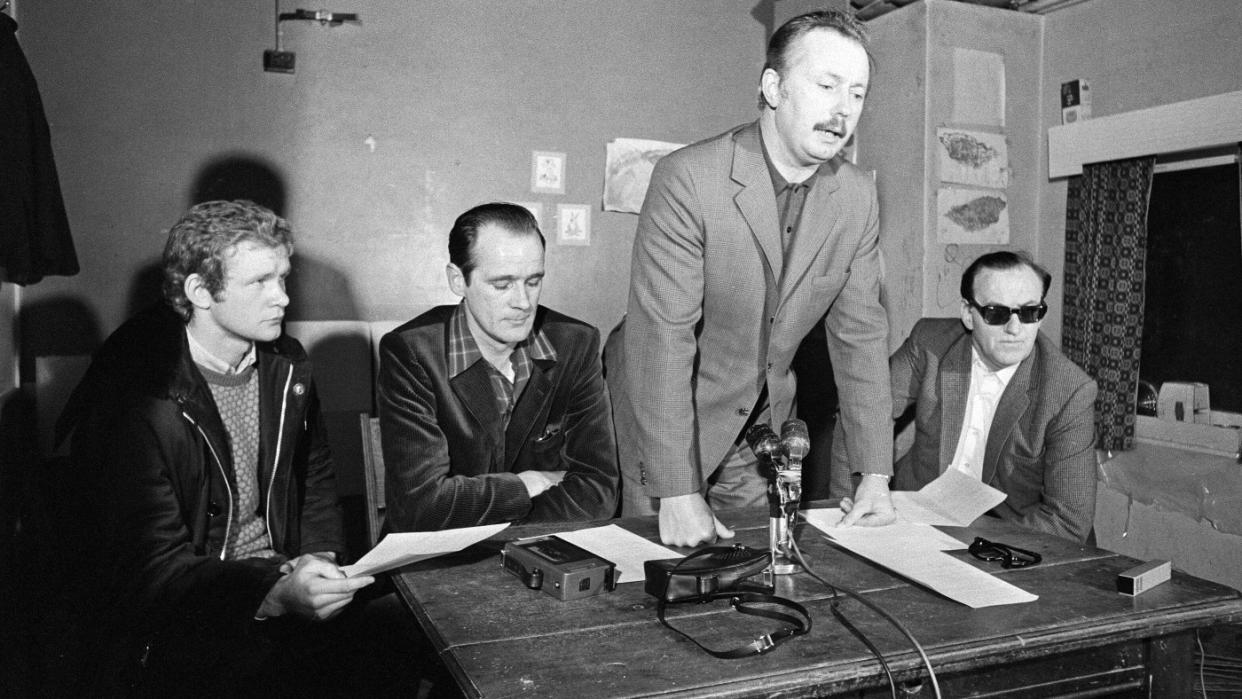The Secret Army: the IRA propaganda film forgotten for almost 50 years

- Oops!Something went wrong.Please try again later.
A new BBC documentary tells how in 1972 the Irish Republican Army (IRA) allowed an American TV crew to film the inner workings of "Europe’s deadliest guerrilla force".
It's "The Troubles meets a Tom Clancy novel", wrote Ed Power in The Irish Times.
The background
In 1972, during the "darkest days of the conflict in the North [of Ireland]", John Bowyer Bell, an American academic sympathetic to the IRA, persuaded its leadership to allow him to film its "bloody campaign from the inside, for a project he titled 'The Secret Army'", said Power.
Some of the scenes are "chilling", he added. For example, there is a sequence in which the crew accompanies IRA members as they plant explosives in central Londonderry – part of a bombing blitz that would claim eight lives.
Why did the IRA allow such access? They "must have imagined they were carefully stage-managing a propaganda coup that would loosen the purse strings of the US's millions-strong Irish community to donate to the Republican cause", said Oliver Harvey in The Sun.
The film showed "remarkable scenes never seen before or since", including the "nuts and bolts" of how IRA men and women "went about planning and unleashing mayhem, and what they thought about it", said Rory Carroll in The Guardian. But then it "vanished for almost 50 years".
The latest
The new feature-length documentary follows reporter Darragh MacIntyre as he attempts to "unravel the mystery" surrounding the making of Bell's film, said the BBC.
MacIntyre travelled "from Derry to Arizona seeking out documents and anyone still alive" who featured in the film, said James Jackson in The Times. "Intrigue led to further intrigue" because the film's director, Zwy Aldouby, was a Nazi hunter linked to Mossad and the Israeli intelligence agency itself was "snooping" on Muammar Gaddafi's links to the IRA.
In "another twist", said Carroll, a producer of the film said British intelligence viewed the documentary while it was being developed in London and before it was sent to the States. "Which raises another question," he added: "why did the spooks not pounce on material that incriminated [Martin] McGuinness and other IRA commanders?"
The reaction
MacIntyre's documentary has been well received by the critics, despite some challenging scenes. "As murky as this Le Carré-esque stuff was," said Jackson, there was "something fascinating simply in watching the former IRA guys remembering it all. Because it can be hard to know how to feel when seeing the elderly talk about their days supporting terrorism."
MacIntyre is the sort of investigative journalist television producers "adore", said Power, because "he isn't opposed to inserting himself into the action", and there will "always be a scene or three" in which he "huffs about, chasing a lead like Hercule Poirot hunting down a murderer".
The programme "points to the complexity of Northern Ireland's conflict" and its "continuing capacity to raise more questions than we are able to answer at this time", said Martin Duffy for E-International Relations. And it appears that British intelligence made a "deliberate decision to cultivate Martin McGuinness".
The BBC film is "astonishing", said the Belfast Telegraph, and it may not be the end of the matter. It was a "tangled, murky tale", said Jackson, and it's "not hard to think a movie is waiting to be made of it all".

